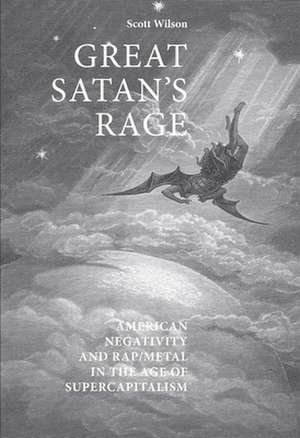Great Satan's Rage
Autor Scott Wilsonen Limba Engleză Hardback – 31 mar 2008
The book offers a highly original approach in relating rap/metal to critical theories of economy and culture, introducing a new method of cultural analysis based on theories of negativity and expenditure that will be of great interest to students in media and cultural studies, American studies, critical and cultural theory, advertising and marketing, and sociology and politics.
Preț: 720.56 lei
Preț vechi: 935.79 lei
-23% Nou
Puncte Express: 1081
Preț estimativ în valută:
137.92€ • 149.87$ • 115.93£
137.92€ • 149.87$ • 115.93£
Carte tipărită la comandă
Livrare economică 21 aprilie-05 mai
Preluare comenzi: 021 569.72.76
Specificații
ISBN-13: 9780719074639
ISBN-10: 0719074630
Pagini: 199
Dimensiuni: 163 x 236 x 23 mm
Greutate: 0.45 kg
Editura: MANCHESTER UNIVERSITY PRESS
ISBN-10: 0719074630
Pagini: 199
Dimensiuni: 163 x 236 x 23 mm
Greutate: 0.45 kg
Editura: MANCHESTER UNIVERSITY PRESS
Notă biografică
For over thirty years, Scott Wilson grew Oaks Church into a thriving ministry with global impact. He has served thousands of families and raised hundreds of successful leaders. Scott has also founded both The 415 Leadership and Ready Set Grow-programs created to empower pastors, leaders, and their churches.
Descriere
This book looks at how American rap/metal has engaged with America's defining role in the world after the Cold War. It offers a highly original approach in relating rap/metal to critical theories of economy and culture and introduces a new method of cultural analysis based on theories of negativity and expenditure.
